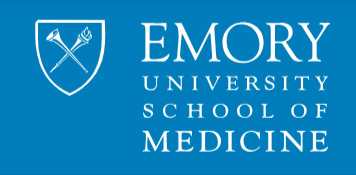Do you want to become a dermatologist and make a promising career in that field? Explore the best medical schools for dermatology in 2024 and start your journey!
Table of Contents
Dermatologists are highly trained physicians who deal with the diagnosis and treatment of skin, hair, and nail conditions. When it comes to dermatology programs, choosing the right medical school is an important step for aspiring dermatologists.
The right school sets your path in this particular field. You will find numerous medical schools that offer dermatology programs. But, choosing the right option can be challenging for anyone. But, no worries!
This guide highlights the best medical schools for dermatology renowned for their dermatology programs and state-of-the-art facilities, ensuring aspiring dermatologists receive excellent preparation for the skin care field. If you are medical student then and looking for schools then you can check our detailed article on Medical Schools With Lowest Acceptance Rates.
What is Dermatology?
Dermatology is a specialized field of medicine dedicated to identifying and addressing various skin, hair, and nail disorders through diagnosis and treatment. Dermatologists are physicians trained in this field who treat a wide variety of conditions, such as skin diseases, acne, skin cancer, and cosmetic problems. They use a variety of diagnostic techniques as well as therapeutic approaches, including topical medications, laser therapy, and surgery. Preventive care, early detection of skin diseases, and chronic condition management are all involved in dermatology.
In addition to medicinal considerations, dermatologists can also provide cosmetic operations to improve the appearance of the skin. Overall, dermatology is essential in treating a variety of dermatological conditions to maintain skin health and general well-being.
Branches of Dermatology
- Cosmetic Dermatology
- Dermatoimmunology
- Cutaneous Lymphoma
- Medical Dermatology
- Photomedicine
- Surgical Dermatology
- Dermatopathology
- Pediatric Dermatology
- Immunodermatology
What Does a Dermatologist Do?
Dermatologists are medical doctors who focus on the treatment and diagnosis of diseases of the skin, hair, and nails. Here is a concise summary of their responsibilities:
Medical Expertise
- Diagnosis and Treatment: Dermatologists cover over 3,000 skin, hair, and nail conditions, from simple skin problems like acne and eczema to complex problems like skin cancer.
- Perform Procedures: They are able to perform minor surgeries, wart treatments, mole removal, and biopsies.
- Management of Chronic Conditions: They are experts in treating long-term skin problems. They can customize a care plan to efficiently manage skin problems.
- Identifying Underlying Issues: Skin conditions can sometimes be a sign of internal health problems. So when necessary, dermatologists are qualified to make connections and refer you to other medical professionals.
Cosmetic Issues
- Dealing with Appearance-related Issues: Dermatologists are well-trained to deal with the problems of unwanted hair, wrinkles, and uneven skin tone. They offer a variety of therapies to deal with these issues.
- Minimally Invasive Techniques: To ensure safety and best results, they prefer non-surgical or minimally invasive methods for cosmetic concerns whenever possible.
Common Medical Procedures That Dermatologists Perform
- Laser Surgery
- Electrosurgery
- Cryosurgery
- Mole Removal
- Excision Surgery
- Mohs Surgery
- Vein Treatment
- Allergy Skin Tests
- Skin Biopsies
- Tattoo Removal
- Dermabrasion
- Dermal Fillers
- Scar Revision
- Skin Cyst Removal
- Laser Hair Removal
- Face-Lift
- Botox Injection
- Yeast Infection
- UV Light Therapy
- Signs of Aging
- Skin Cancer
- Genital Scores
- Skin Discoloration
- Excessive Sweating
- Varicose and Spider Veins
Overall, dermatologists play a huge role in keeping skin, hair, and nails healthy. They are experts in treating both medical and cosmetic problems.
List of 10 Best Medical Schools For Dermatology
1. Stanford University
- Established: 1891
- Institution Type: Private Research University
- Acceptance Rate: 3%
- Location: Stanford, California, US
One of the best medical schools for dermatology is Stanford University’s School of Medicine, whose Department of Dermatology is well-known for its dedication and innovation to producing great physicians with this specialty. It offers customized fellowship and residency programs.
The university, which is ranked #8 among the best medical schools, offers a highly competitive learning environment that strives to improve the abilities of the learners.
Residents receive clinical training, essential knowledge of how different healthcare systems work, and preparation to treat patients with a variety of skin conditions.
Additionally, the university has affiliations with some of the best-specialized skin clinics in the US. The Department of Dermatology is committed to providing top-level clinical training, consultation support, and a learning environment focused on research.
2. Harvard University

- Established: 1636
- Institution Type: Private Research University
- Acceptance Rate: 4%
- Location: Cambridge, Massachusetts, US
Harvard University is another best medical school for dermatology in the US which is renowned for producing top-notch medical graduates with multiple specializations every year.
The Dermatology Department of the university offers various training and residency programs for advanced specialization. Modern facilities and technology are available in this institution.
Additionally, it encourages dermatology programs that are multidisciplinary, research-focused, and provide a remarkable educational experience. Harvard University seeks to enhance the knowledge and proficiency of residents by providing comprehensive and high-quality clinical education.
3. University of Pennsylvania

- Established: 1740
- Institution Type: Private Research University
- Acceptance Rate: 5%
- Location: Philadelphia, Pennsylvania, US
The Perelman School of Medicine at the University of Pennsylvania is a famous and best medical school for dermatology in the country. Its excellent medical programs are supported by cutting-edge medical research and technologies. The medical school offers a wide range of contemporary medical education with an emphasis on research advancement, patient care, leadership development, and clinical medicine.
The evidence-based learning setting of this medical school for dermatology enhances the residency and fellowship programs. The school’s state-of-the-art facilities and exceptional dermatology focus have earned it global recognition. Additionally, the Dermatology program emphasizes teamwork and demonstrating professionalism and leadership. The institution strives to provide the most inspiring and educational residency program in dermatology.
4. Johns Hopkins University
- Established: 1876
- Institution Type: Private Research University
- Acceptance Rate: 8%
- Location: Baltimore, Maryland, US
The Johns Hopkins University’s Department of Dermatology is recognized as a global leader in patient treatment, education, and research. The various services provided by the department include medical, surgical, and cosmetic dermatology. As well as a strong research program, this medical school for dermatology focuses on inflammatory skin diseases, skin cancer, and other skin diseases.
The next generation of dermatologists is trained by these programs. Some of the world’s greatest dermatologists are alumni of the Johns Hopkins Dermatology Department’s residency program. In addition, the medical school offers several fellowship programs, such as fellowships in Mohs Surgery, Dermatologic Oncology, and Pediatric Dermatology.
5. University of California, San Francisco

- Established: 1864
- Institution Type: Public Land-grant Medical School
- Acceptance Rate: 15%
- Location: San Francisco, California, US
The residency program in Dermatology at UCSF is consistently ranked in the country. Residents’ experiences during this popular 4-year program range from solving common skin diseases to taking on challenging cases in specialty clinics, such as Northern California’s top skin cancer center.
Leading academicians, who have done pioneering work in the fields of research and clinical practice, serve as mentors to the residents. They encourage students to achieve academic and clinical excellence.
In this best medical school for dermatology, graduates are equipped for a variety of professional pathways, including private practice, academic dermatology, and specialty professions. If you are passionate about the skin care field, you can enroll in this school for an unmatched dermatology program experience.
6. University of Miami
- Established: 1925
- Institution Type: Private Research University
- Acceptance Rate: 18%
- Location: Coral Gables-Miami, Florida, US
The University of Miami’s renowned Dermatology Department offers a variety of training options to both aspiring and practicing dermatologists. One of the largest residency programs in the country, it immerses residents in a wide range of clinical conditions in medical, surgical, and cosmetic dermatology.
Foreign-trained physicians at this best medical school for dermatology can increase their proficiency by enrolling in a graduate education specialization training program.
Residents interested in research can pursue a PhD-residency or residency-research track at this school, while specialized fellowship programs in Mohs Surgery, Pediatric Dermatology and more fulfill focused career aspirations.
7. Yale University
- Established: 1701
- Institution Type: Private Research University
- Acceptance Rate: 5%
- Location: New Haven, Connecticut, US
Yale’s Department of Dermatology considered one of the largest and oldest in the US, has a wide range of programs addressing various dermatological problems. The institution’s expertise includes dermatopathology and medical, surgical, oncological, laser, and pediatric dermatology. The conditions they treat range from psoriasis and acne to skin cancer and pediatric concerns.
This medical school for dermatology is a great choice for holistic and cutting-edge dermatology care as its research program actively investigates cutting-edge technology and makes major contributions to treatments.
8. Emory University

- Established: 1836
- Institution Type: Private Research University
- Acceptance Rate: 11%
- Location: Atlanta, Georgia, US
Emory University’s Department of Dermatology, renowned for its knowledge and academic approach, provides holistic skin care services for people of all ages. Under the direction of board-certified physicians, the department addresses a variety of ailments, such as eczema, acne, hair loss, and skin cancer.
Additionally, the team, which includes leading people from the field and the country, utilizes the specialized resources of an academic medical facility to integrate teaching and research into their practice.
9. Northwestern University
- Established: 1851
- Institution Type: Private Research University
- Acceptance Rate: 7%
- Location: Evanston, Illinois, US
Medical students at Northwestern University are offered several opportunities for dermatology rotations. Additionally, at this medical school for dermatology, students are allowed to join dermatology interest groups. They have the opportunity to meet attendings and residents in the field of dermatology as well as learn more about the specialty by attending special sessions offered by the department during the winter of the third year of medical school (M3 year).
10. Mayo Clinic College of Medicine and Science

- Established: 1915
- Institution Type: Private Nonprofit University
- Acceptance Rate: 49%
- Location: Rochester, Minnesota, US
The Mayo Clinic Department of Dermatology offers renowned training programs for prospective dermatologists and dermatologists. There are three certified dermatology residencies available at their campuses in Minnesota, Arizona, and Florida. These provide residency trainees with a broad clinical experience ranging from common problems to unusual and complex cases.
Residents benefit from research opportunities, a collaborative learning environment, and a heavy emphasis on diagnosis.
For even more targeted training, this medical school for dermatology offers fellowships in dermatology, micrographic surgery, dermatologic oncology, and pediatric dermatology.
How Can I Improve My Chances of Matching Into a Competitive Dermatology Program?
- Continue to do well academically in medical school.
- In dermatology, look for early and diverse clinical encounters.
- Participate in dermatological research.
- Attend conferences for professionals and build relationships with dermatologists.
- In your personal statement and during the interview, demonstrate your enthusiasm and commitment.
FAQs
1. What are the average MCAT scores for dermatology applicants?
While important, MCAT results are not the only consideration. So, aim to score above the national average, ideally between 510 and 515. Make sure your knowledge is complete and that you have academic ability.
2. How competitive is admission to dermatology programs?
There is high competition for some seats in dermatology. To make an impact, applicants often need stellar academic records, attractive letters of recommendation, and notable extracurricular involvement.
3. What does dermatology residency training involve?
Residency programs in dermatology typically last 3 years. A combination of didactic lectures, clinical rotations, and research are all part of the training. Dermatology experiences include medicinal, surgical, and cosmetic.
4. Should I do research in dermatology before applying for residency?
Your dedication is strengthened by research experience, which highlights your dedication to the field and research abilities. So, look for opportunities that fit your interests, even if they aren’t directly related to dermatology.
5. How much do dermatologists make in the US?
Dermatologists in the United States earn an average of $101,037 per year. Entry-level jobs start at $50,000. Professionals with experience in this industry can earn up to $375,000 per year. The average hourly salary is $48.58. These figures reflect the wide range of salaries in the field of dermatology.
Conclusion
Specialization in dermatology requires extensive training and a commitment to academics. For a thorough education in the science of dermatology, it is essential to select the best medical schools for dermatology. High-quality dermatology programs are offered by prestigious medical schools.
Their Dermatology programs provide students with a combination of theoretical knowledge and real-world experience, giving them the resources they need to treat a variety of skin diseases. A medical school should be tailored to one’s professional objectives in order to provide the foundation for a rich and satisfying dermatology practice.












Add Comment